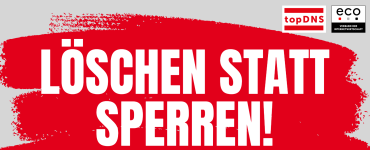eco – Association of the Internet Industry & ICANN – Internet Corporation for Assigned Names and Numbers held a joint ICANN79 Readout to summarise and discuss selected topics from the ICANN79 Community Forum in San Juan.
- The full readout summary is available for download as a PDF here.
At the ICANN79 Readout on 14 March 2024, speakers from various sectors of the ICANN community provided highlights and take-aways from the AGM that took place in San Juan on 14 March 2024. The readout was co-hosted by Christopher Mondini, Vice President, Stakeholder Engagement & Managing Director from Europe ICANN Org, and Thomas Rickert, Director Names & Numbers at eco Association.
Christopher Mondini opened the Readout by expressing his pleasure in partnering with eco to produce insightful readouts that provide both a deep dive and analysis into ICANN’s policy areas, serving as a valuable resource for those unable to attend meetings. He highlighted the seamless integration of hybrid experiences, where both in-person and online participants were equally engaged and effective, and gave an overview of the recent ICANN meeting in San Juan, which attracted over 1,000 on-site participants and over 500 online.
Key panellists’ insights from San Juan
Following on from Mondini’s overview, the Recommendation 7 from the Cross-Community Working Group on New gTLD Auction Proceeds was reviewed by Greg DiBiase, Chair of the GNSO Council. This recommendation centres on the disbursement of auction proceeds from the 2012 round. It aims to provide support for applicants applying for a Top-Level Domain (TLD) while disallowing accountability mechanisms such as the Independent Review Mechanism (IRM) for challenging decisions by the Applicant Review Board.
The topic of singular and plural domain names in new gTLD applications was subsequently raised by Chris Disspain, member of the ccNSO council. The original recommendation of the sub-group had been that singulars and plurals should not be allowed to avoid contention. However, the board expressed concerns about some additional complexities in the recommendation.
A further factor related to the Registry Voluntary Commitments (RVCs), which was covered by Jonathan Zuck, Chair of the At-Large Advisory Committee. As he reported, RVCs are undertakings made by organisations applying for new TLDs to better manage strings. These commitments can include ensuring that only licensed entities can obtain certain TLDs or handling copyright violations. Once made, these commitments become binding and need to be incorporated into contracts and enforced.
From a related perspective, Nicolas Caballero, Chair of the GAC, elaborated on the discussions about RVCs which were framed by the GAC’s advice in the ICANN77 Washington D.C. Communique. He highlighted three main points, including the need for adequate time for analysis (especially for non-lawyers); concerns about the necessity of fundamental bylaw amendments related to content; and ensuring that any outcomes do not jeopardise existing agreements made by registries based on GAC’s advice.
In turning to the concept of the diversity of opinion within the Non-Commercial Stakeholder Group (NCSG), Philippe Fouquart, Chair of the ISPCP highlighted the new provisions in the registry and registrar contracts. He noted that, even within the NCSG, there are different perspectives on how these provisions might play out and the willingness to engage in discussions about their implementation. Philippe also emphasised that this diversity of views extends beyond stakeholder groups, suggesting that there are different views within the NCSG itself.
A further exciting insight related to name collisions from the angle of the Security and Stability Advisory Committee (SSAC) at ICANN79, as highlighted by Ram Mohan, Chair of the SSAC. He explained that name collisions occur when two different TLDs have the same name but exist on separate systems, causing confusion. As he stated, the SSAC was tasked with assessing the risks associated with name collisions and proposing methods to mitigate them.
Finally, regarding the Expedited Policy Development Process (EPDP) recommendations, the ICANN79 AGM had emphasised the necessity of providing a legal basis for data transfers, making them compulsory. This was highlighted by Thomas Rickert, Director Names & Numbers at eco Association. In wrapping up the Readout, Thomas Rickert thanked the panellists, organisers, and participants of the ICANN79 Readout.
The video of the ICANN79 Readout is available online.




